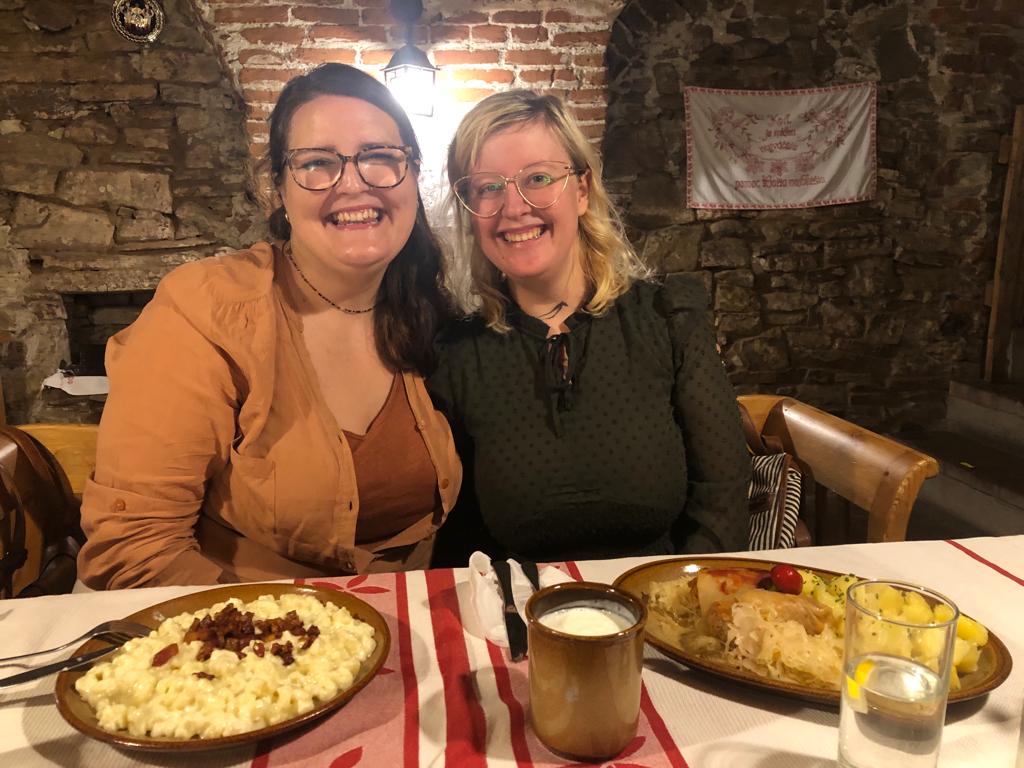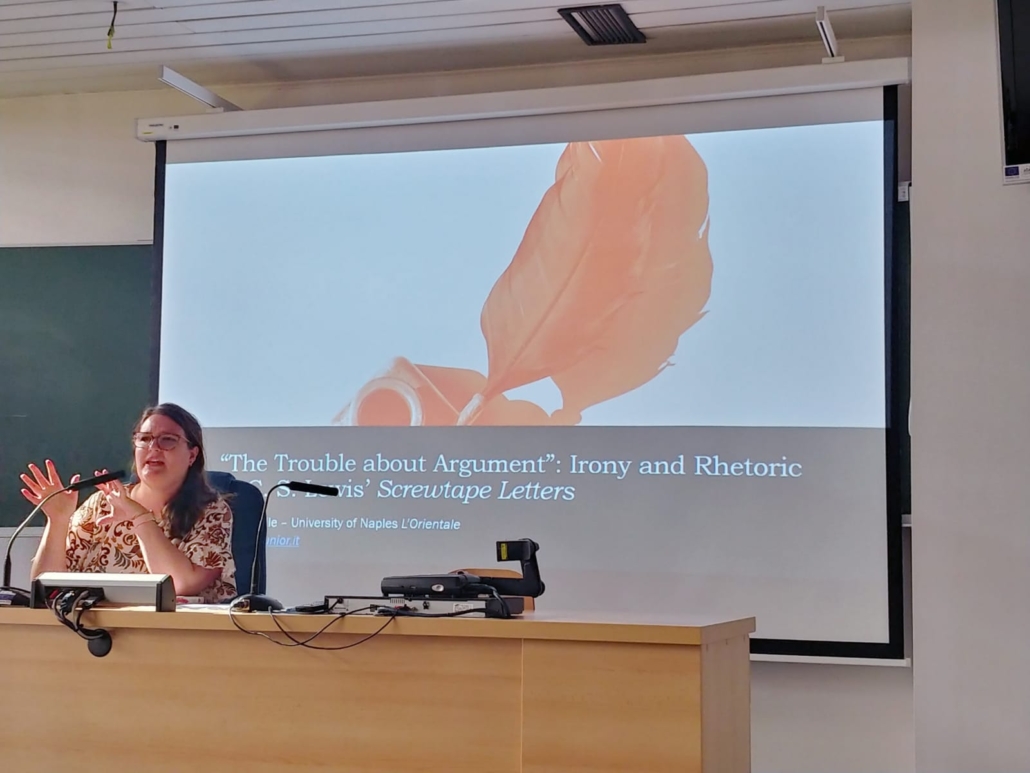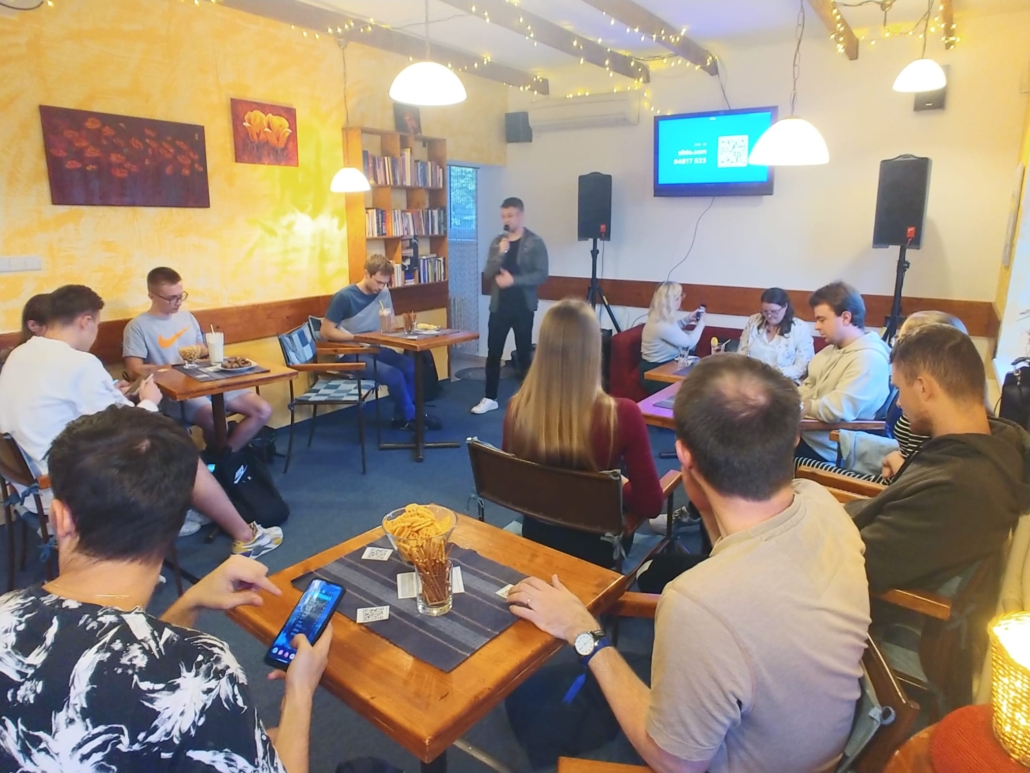Slovak lessons
By Aoife Beville, university researcher and former GBU student
Ahoj!
Ahoj! – that’s how they say ‘hello’ in Slovakia, where I visited at the beginning of October. I’m Aoife (pronounced Ee-fah), I’ve been involved in different IFES groups: Cork (Ireland) where I’m originally from and where I was co-coordinator of the Christian Union during my BA; Bologna, where I did two years of InterAction, an IFES international voluntary work programme where I supported the students of the local group; Naples, where I was co-coordinator of the group during my MA. Now, I am back in Naples and still at university, but on the other side of the lectern! I research and teach in the field of English linguistics. You may be asking yourself ‘what does Slovakia have to do with it?’ Good question!
Good News for the University
Last year at an IFES conference I met Sara, a VBH (GBU) staff worker in Slovakia. We started talking about the usefulness of having Christian academics involved in the work of national movements. I believe that the gospel is good news for the university and I would like to be able to support and serve GBU students as I do my work. I told Sara about my research on irony as a persuasive strategy in The Screwtape Letters by C.S. Lewis. A linguistic and literary study that, due to the nature of the text, touches on various interesting topics (apologetics, atheism, etc.). Sara invited me to come to Slovakia to give a lecture at the university on the topic of this research.
“The Trouble about Argument”

So, through Sara’s contacts I was invited to give two lectures in the English Language and Anglo-American Literature courses at the University of Prešov. The lectures were entitled: “’The Trouble about Argument’: Irony and Rhetoric in C. S. Lewis’ Screwtape Letters” and presented the stylistic analysis of the text. The text, for those unfamiliar with it, is a sardonic epistolary novel consisting of letters from one demon to another with detailed instructions on how to ensure the eternal damnation of a human ‘patient’. Linguistically, it is a fascinating text that makes use of neologisms, irony, bureaucratese and other peculiar stylistic features to persuade the reader of the intellectual and spiritual validity of Christianity. Written more than 80 years ago, during World War II, it presents a lucid and surprisingly relevant critique of the objections to the Christian faith. The lessons went well, the students participated actively and I had the opportunity to chat with both them and their professors.

A Polarised Society
My lectures in Prešov took place during election time, a time of high tension and strong division in the public debate. Given the themes of the lectures, the local student group also invited me to participate in evening activities in a café near the university. We advertised these evenings under the title ‘Polarised Society’ and while handing out leaflets our team had some interesting conversations about it with students on campus, the topic certainly attracted their attention. At the café we welcomed guests with ice-breakers and questions for discussion in small groups. Following this, I was interviewed using questions from attendees that arrived via app (Slidoo; highly recommended for similar events!). The discussion was wide-ranging and touched on various topics: my personal journey to faith; tips for healthy debate in a divided society; questions on the validity of the Christian faith. In fact, even after the official end of the evening we stayed chatting for so long that we had to order pizzas to feed the crowds. As a good adoptive-Neapolitan perhaps it is better if I don’t comment on Slovak pizza!

Good News for GBU
The VBH is a national movement with different challenges than the Italian GBU. For example, there are only two staff workers – Sara and Graham (also Gen Sec). However, the vision is the same! The events in Prešov were part of an attempt to revive the group after a slowdown caused by the pandemic. It was encouraging to see some students better understand the purpose of the local group – not simply a club for young believers but a space to welcome those who would like to know Jesus. The students seem to have been empowered and encouraged by the events we held together, their feedback has been really positive. Many Ukrainian students – who are now studying in Slovakia because of the war in their country – came to the Cafè Nights. It was a joy to see the Slovak students welcome them and offer them the kind of community – safe, hospitable and friendly – that they so badly needed. I am grateful to the Lord for the experience and for the blessings we received during those days. I also feel that no local group or national movement is too small to think big and organise such events!





